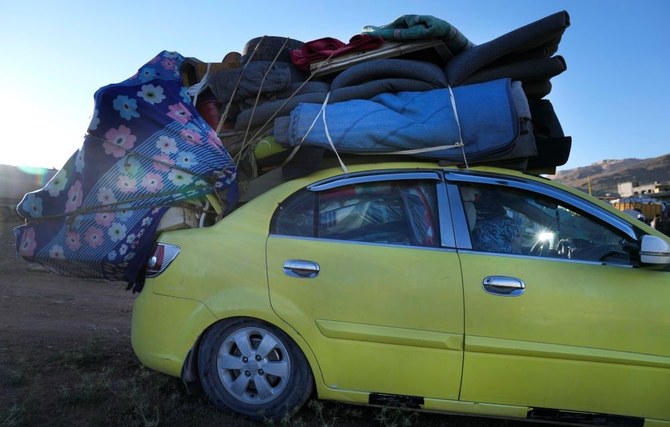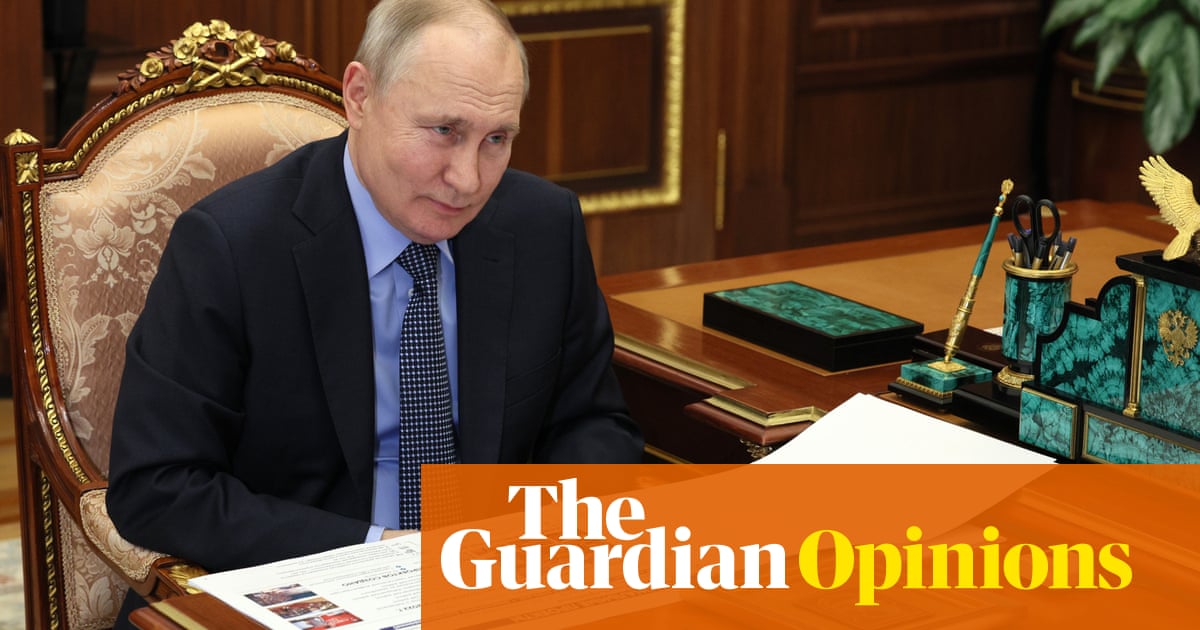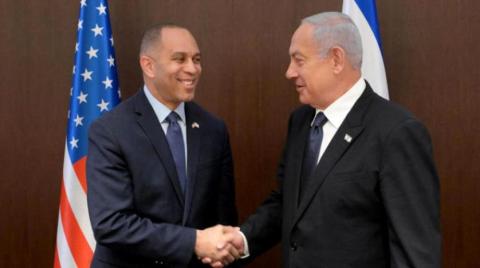
Israel worries Assad could let his Iranian and Hezbollah reinforcements entrench near Israeli lines or that Syrian forces may defy a 1974 Golan demilitarization.
Since turning the tide of Syria’s civil war by intervening militarily in 2015 on Assad’s behalf, Russia has turned a blind eye to scores of Israeli airstrikes against Iranian and Hezbollah deployments or arms transfers, while making clear it wanted Assad
MOSCOW: Israeli Prime Minister Benjamin Netanyahu has told Russia that Israel would not seek to topple its ally, Syrian President Bashar Assad, but Moscow should encourage Iranian forces to quit Syria, a senior Israeli official said.
Netanyahu conveyed the message in talks with Russian President Vladimir Putin, the official said.
Israel has been on high alert as Assad’s forces advance on fighters in the vicinity of the Golan Heights, much of which Israel captured from Syria in 1967 and annexed in a move not recognized internationally. Israel worries Assad could let his Iranian and Hezbollah reinforcements entrench near Israeli lines or that Syrian forces may defy a 1974 Golan demilitarization.
“They (Russia) have an active interest in seeing a stable Assad regime and we in getting the Iranians out. These can clash or it can align,” said the Israeli official.
“We won’t take action against the Assad regime,” the official quoted Netanyahu as telling Putin in Moscow.
David Keyes, a Netanyahu spokesman, denied that the prime minister made that statement to Putin.
Asked to summarize Israeli policy on Syria, Keyes said: “We don’t get involved in the civil war. We will act against anyone who acts against us.”
The Israeli official who requested anonymity said Russia was working to distance Iranian forces from the Golan and had proposed that they be kept 80 km away but that this fell short of Israel’s demand for their full exit along with that of Tehran-sponsored militias.
Russian officials had no immediate comment on the meeting.
Since turning the tide of Syria’s civil war by intervening militarily in 2015 on Assad’s behalf, Russia has turned a blind eye to scores of Israeli airstrikes against Iranian and Hezbollah deployments or arms transfers, while making clear it wanted Assad kept immune.
Israeli Cabinet ministers threatened this week to fire on Syrian forces that enter the Golan buffer zone set up as part of a 1974 UN-monitored armistice. The UN last month renewed the mandate of its Golan observer force UNDOF and on Wednesday called on all parties to abide by the armistice.
“There should be no military forces in the area of separation other than those of UNDOF,” a UN spokesman said.
Israel has signaled openness to eventual ties with Assad, a tacit acknowledgement that he is re-consolidating power as he routs Syria’s fighters.
Under Assad family rule, Syria held direct negotiations with Israel in the US in 2000 and indirect talks mediated by Turkey in 2008. Netanyahu’s government has made clear it would not now cede the Golan and has been lobbying for US recognition of Israel’s claim of sovereignty there.
On June 24, Israel’s military said it launched a Patriot missile at an incoming drone from Syria, which turned away unscathed. A Syrian commander said the drone was engaged in local operations.
On July 6, Israel struck a Syrian post that it said had shelled the Golan buffer zone.
Hours after conferring with Netanyahu about Iran"s presence in Syria, Putin received Ali Akbar Velayati, a senior adviser to Iran"s Supreme Leader Ayatollah Ali Khamenei.
Putin"s spokesman, Dmitry Peskov, said that Velayati handed Putin letters from Khamenei and Iranian President Hassan Rouhani.
Peskov said in a conference call with reporters that the letters dealt with bilateral relations and the situation in the region, but refused to elaborate.
"Our opinion is known that Iran needs to leave Syria — that is not something new for you," Netanyahu said at the start of Wednesday"s talks in the Kremlin.
The Iranian presence in Syria is expected to top the agenda of Monday"s summit in Helsinki between Putin and US President Donald Trump. Both the US and Israel want Iran to pull out from Syria, but Russia has warned it would be unrealistic to expect Iran to fully withdraw from the country.












